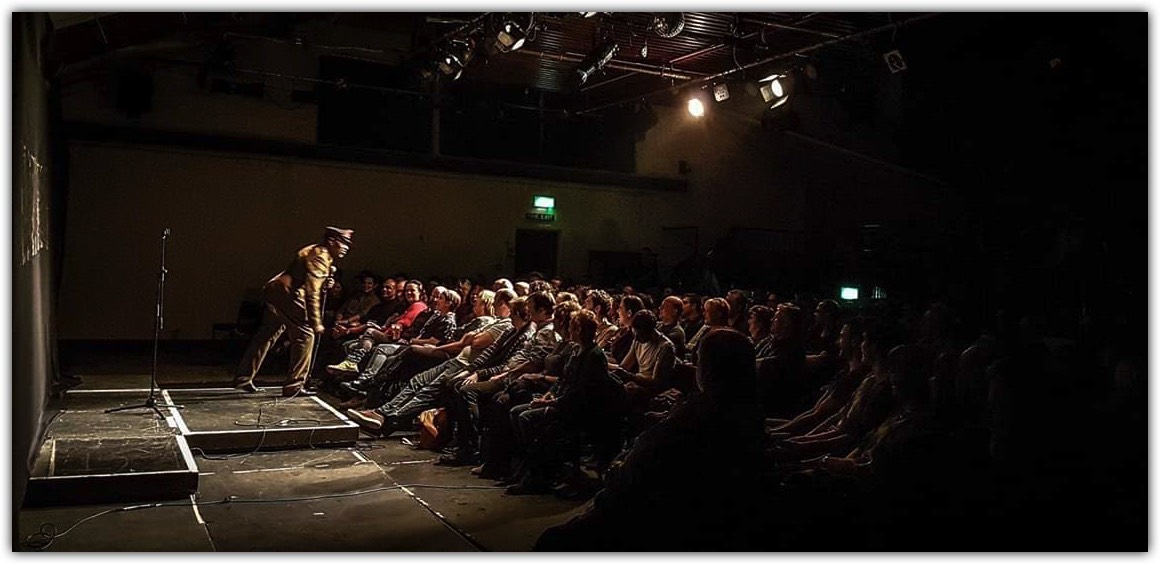President Obonjo begins this gig with the usual uniquely militaristic routine: Making the audience stand for extended periods of reverence whilst he barks at the them from the back of the room. He singles out individuals for special attention, and of course leads everyone in a recitation of the Lafta Republic national anthem. This is a comic assault and actually serves to identify those within the audience who will be susceptible to guffaws or who are more likely to be compliant. Like stage hypnotists who preselect participants, Obonjo puts each member of the audience in a position of brief vulnerability, which gives him a greater comic advantage than other, less Presidential performers.
He then solemnly explains that the Lafta Republic is experiencing the consequences of a coup-de-etat, but with the audience nonplussed he swiftly changes gear – almost eager to ditch the Presidential persona. On this occasion there is a different motivation for this ritual. Obonjo is looking for a certain kind of audience member who has distinct personality traits – but to reveal more would undermine the premise of the show. This means that the set is split into two distinct parts: the first being the aforementioned Presidential schtick, and the second filled with more reflective and personal material which Obonjo carries with aplomb.
He remarks that not all audiences have responded positively to the dictator persona, and the shift into less abrasive territory signals a shift in audience response. The two-part structure ensures that the entire room is on board with the material, and it’s evident that Obonjo is aware of the polarising nature of the character and has adapted accordingly.
There is warmth to his crowd work, and that’s transformed into laughter, but not the nervous kind that his previous Fringe offerings have elicited. He deconstructs his stage persona and his attire with some nicely self-deprecating observations, and he does touch on the E4 controversy (although the audience need to be convinced that this is indeed a real ‘coup-de-etat’).
The larceny which threatens his comic creation may have supplied a rich seam of comic indignation, yet the issue perhaps hits too close to home to fully embrace. Obonjo wants to make a connection with the audience, and he wants to share an experience. On this evidence he will be doing so for many years to come.
